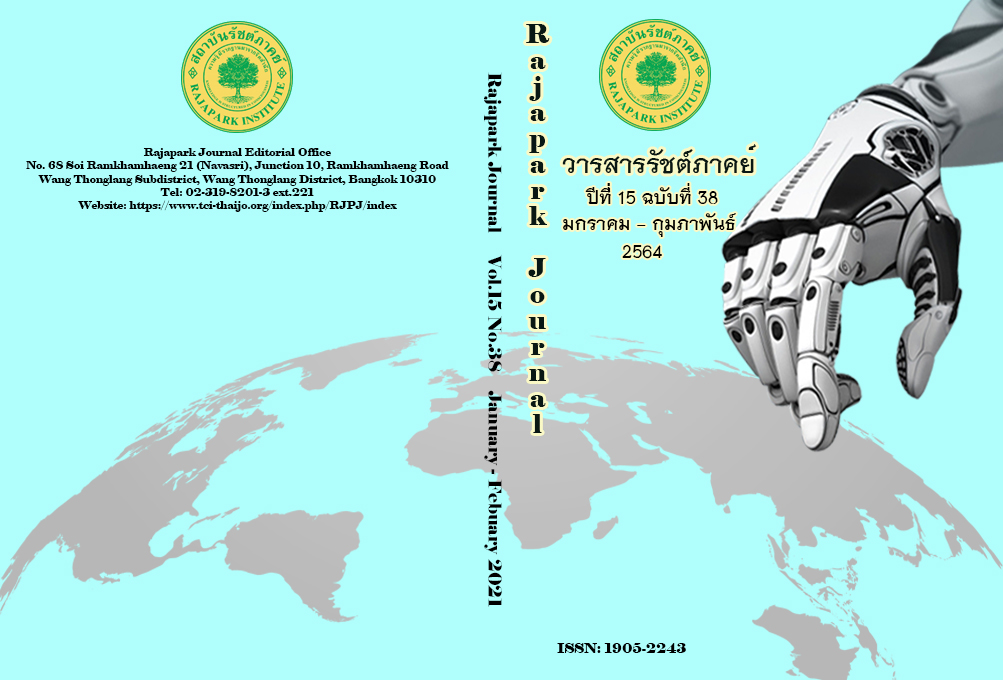The Control of the Conclusion of a Contract through the Exploitation of Circumstances of Weakness of a Contracting Party
Main Article Content
Abstract
This research is aimed at exploring problems relating to the declaration of an intention under circumstances of weakness, investigating limitations plaguing Thai laws about the protection of a party concluding a contract under a circumstance of weakness, and recommending an appropriate approach to amendment of Thai law for protecting a contractual party under a circumstance of weakness. This research is qualitative documentary research, whereby Thai law is discussed in comparison with the laws elsewhere, which include English law and principles of the law of Australia, China, and the European Union. It is found from this research that principles of law in the Civil and Commercial Code of Thailand remain insufficient for protecting a contractual party concluding a contract under a circumstance of weakness (for instance, illiteracy, lack of understanding of the transaction concerned, incomplete awareness prompted by old age, financial need, emotional distress or intoxication) when the other party is aware of such circumstance and takes advantage of it in leading the circumstantially weakened party to conclude a disadvantageous contract, while the doctrine of unconscionable bargains in English law and Australian law affords protection to a party under such circumstance and certain jurisdictions have indeed turned such judge-made doctrine into a written provision of law. Amidst the insufficient net of protection in Thai law, it is recommended that the Civil and Commercial Code of Thailand be amended by inserting a new provision as section 166/1 for protecting a contractual party concluding a contract under a circumstance of weakness.
Article Details
Views and opinions appearing in the Journal it is the responsibility of the author of the article, and does not constitute the view and responsibility of the editorial team.
References
Fu, J. (2011). Modern European and Chinese Contract Law: A Comparative Study of Party Autonomy. Wolters Kluwer Law & Business.
Hedlund, R. (2016). Conscience and Unconscionability in English Equity. PhD thesis, University of York.
Nanakorn, P. (1996). The General Rule for the Control of Unfair Terms in Contracts: Justifications and Operational Contents. Ph.D. Dissertation. University of Bristol.
Nanakorn, P. (1999). English Law of Contract, in Memorial Book in Commemoration of Mr. Nukul Nanakorn’s Cremation Ceremony. Bangkok: Press Media.
Nanakorn, P. (2000). Law on Unfair Contract Terms: New Comparative Analysis. Thammasat Law Journal, 4(30), 546-588.
Office of the Council of State. (n.p.). Report of the Legal Drafting Committee, March 13, 1924. “Illustration for the Civil and Commercial Code Book 1, 2”. Revised B.E. 2468(1925) Section 126. Bangkok: Office of the Council of State.
Pongsapan, M. (2019). The civil law system: from the twelve tables to the Thai civil and commercial code. Bangkok: Faculty of Law, Thammasat University.
Sotthibandhu, S. (2018). Law of Contract (22nd ed.). Bangkok: Winyuchon.
Sumantakul, T. (2016). Law and economics. Bangkok: Winyuchon.
Tungnirun, A. (2014). Introduction to Chinese Legal System. Bangkok: Winyuchon.


